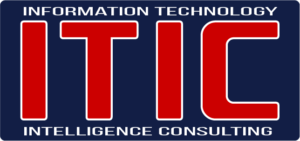A new independent ITIC/Sunbelt Software survey of nearly 1,500 companies worldwide indicates 60% of respondents will deploy Windows 7. Nearly one-third of respondents — 30% — say they will migrate to the new Microsoft desktop operating system within the first six months while another 20% say they will upgrade within the year.
Among the other Survey Highlights:
• An overwhelming 80% majority of the survey respondents rated Windows 7 performance and applications compatibility with legacy applications “Excellent” or “Very Good.” See Exhibit 1.
• Approximately 11% of companies said they plan to wait until the first Service Pack ships before migrating.
• Of the 40% of respondents who had no definitive migration timetable, 25% cited satisfaction with their current Windows XP and Windows Vista desktops.
• Less than 2% of those polled said they were considering switching from Windows to another desktop OS.
The survey findings are a clear indication and validation that Microsoft’s efforts in locking down the Windows 7 code to ensure a high degree of backwards compatibility with existing and legacy hardware, software, applications and drivers, delivering a wide array of deployment tools, has been overwhelmingly successful.
To accomplish this Microsoft adopted a series of internal and external initiatives which are designed to deliver the highest degree of applications compatibility, thus ensuring a more straightforward and simplified migration Windows XP and Vista to Windows 7.
Internally, Microsoft made a concerted effort over the last two years to provide a wide array of online deployment tools and toolkits. Initiatives like the Application Compatibility Toolkit (ACT) are proactive measures that specifically allow corporations and consumers to pre-determine, whether or not their applications and drivers will work with Windows 7. ACT and other tools also enable users to troubleshoot and find solutions for technical problems. The Redmond, Washington software giant is also offering a series of online and optional premium compatibility planning and evaluation services.
To complement the free online tools, Microsoft also initiated a broad and deep “Ecosystems Readiness Approach,” initiative. Microsoft proactively engages its OEM hardware vendors and independent software vendors (ISVs) worldwide by providing them with technical workshops to train them on various aspects of the Windows 7 platform to ensure compatibility. These workshops, which are being given in 40 countries, also offer Microsoft partners a channel with which to provide direct feedback on any compatibility issues that may crop up and serve as a powerful training tool.
These actions are exactly what Microsoft needed to do in order to provide its corporate and consumer customers with a high level of integration and interoperability with their legacy hardware, driver and software applications. The ultimate test will come over the next several months as users widely deploy Windows 7 in production networks. However, Windows 7 must still prove its mettle to the 40% of organizations — commerical and academic — as well as consumers who are still skeptical and leery of potential compatibility problems. Additionally, some cash-constrained organizations, say their firms lack the funds, to migrate to Windows 7. And 26% of the 40% of respondents with no definitive migration plans, indicate they’re content to remain on Windows XP or Windows Vista for the foreseeable future. Wooing this contingent may prove to be Microsoft’s biggest challenge.
The early indications, based on the survey data and first person interviews with beta users and early adopters, is that Microsoft’s full court press to ensure applications compatibility has paid off.
No tags for this post.